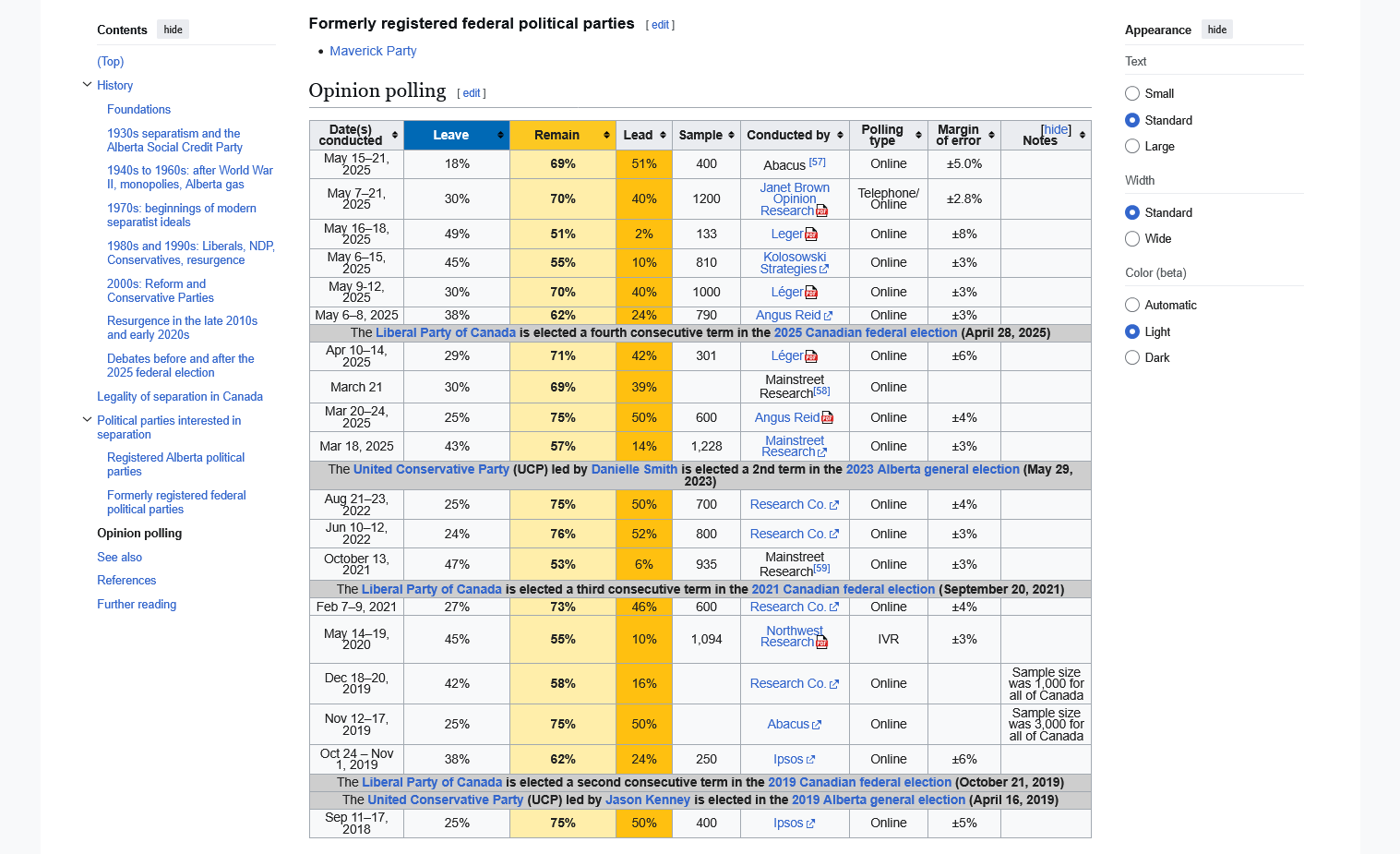
Thanks, cutworm!
Quebec was threatening to succeed since I was a boy(1960s/70s) living on the US side of the Ambassador Bridge that crosses over the Detroit River connecting Detroit with Windsor, Ontario.
They never managed to do it for various reasons, although one vote was extremely close in the early 90's that featured residents just barely voting above 50% to NOT succeed. I've followed this for over 50 years and been to Ontario dozens of times when younger. Quebec province 3 times, including part of our honeymoon.
Canada is an awesome country!
Alberta is the fossil fuel capital of Canada. My wife has a partner that lives in Alberta and 2 more that live in Ontario (Toronto) with the other one being from here in Evansville. So we are tuned into alot of the stuff going on in Canada.
The chance of these western provinces succeeding is extremely low.
https://en.wikipedia.org/wiki/Alberta_separatism
Alberta separatism comprises a series of 20th- and 21st-century movements advocating the secession of the province of Alberta from Canada, with some groups supporting the creation of a sovereign union with the other provinces of Western Canada or Alberta joining the United States as a state or territory.
The main issues driving separatist sentiment have been the power disparity relative to Ottawa and other western provinces; a sense of distinctiveness with regards to Alberta's cultural and political identity; and Canadian fiscal policy, particularly as it pertains to Alberta's petroleum industry.
The concept of separation has gained considerable media attention in the aftermath of the 2025 federal election, which resulted in a fourth consecutive Liberal victory.

https://en.wikipedia.org/wiki/Clarity_Act
The Clarity Act[1] (French: Loi sur la clarté référendaire, known as Bill C-20 before it became law) is legislation passed by the Parliament of Canada that established the conditions under which the Government of Canada would enter into negotiations that might lead to secession following such a vote by one of the provinces. The Clarity Bill (C-20) was tabled for first reading in the House of Commons on 13 December 1999. It was passed by the House on 15 March 2000, and by the Senate, in its final version, on 29 June 2000.
Although the law applies to all provinces, the Clarity Act was created in response to the 1995 Quebec referendum and ongoing independence movement in that province. The content of the act was based on the 1998 secession reference to the Supreme Court of Canada made by the federal government of Prime Minister Jean Chrétien. Previously in 1996, a private member's bill, the Quebec Contingency Act (Bill C-341) was introduced to establish the conditions which would apply to a referendum regarding the separation of Quebec from Canada, but it did not proceed further than the first reading.